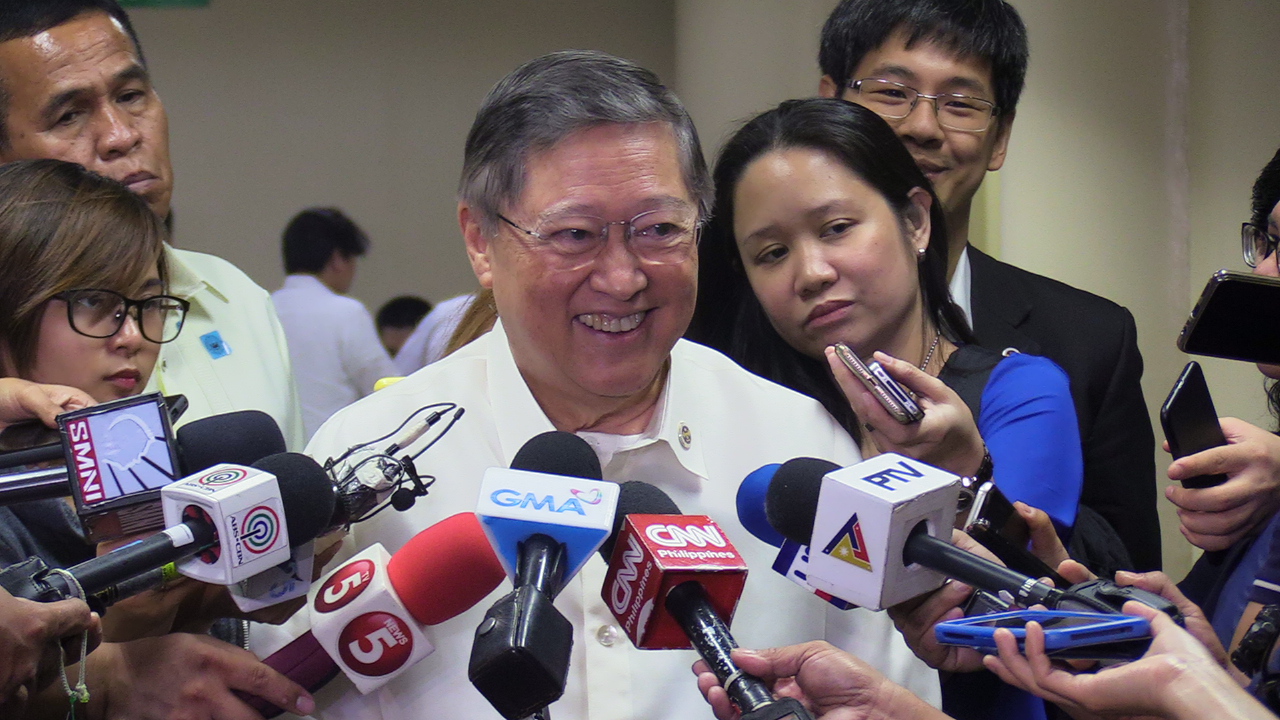Jica to lend $2.35B to PH in 2020 for infra, COVID-19 response

Finance Secretary Carlos Dominguez III. INQUIRER.net file photo / CATHY MIRANDA
MANILA, Philippines — Even as economies worldwide—including Japan—struggled amid the COVID-19 crisis, its aid arm Japan International Cooperation Agency (Jica) will lend to the Philippines this year a total of $2.35 billion (over P117 billion) at low interest rates to continue building more infrastructure while also containing the disease.
On Tuesday, Finance Secretary Carlos G. Dominguez III on behalf of the Philippine government signed two loan agreements with Jica’s chief representative in the Philippines Eigo Azukizawa: 119 billion yen (P57 billion) for the 3.3-kilometer (km) Cebu-Mactan fourth bridge and construction of 4.9-km four-lane coastal road; and 35-billion yen (P18.5-billion) supplemental financing for Davao City bypass construction.
Dominguez said the Cebu project was “so far the biggest infrastructure project in the Visayas under the ‘Build, Build, Build’ program,” with three-fourths of the P76.4-billion total project cost to be covered by Jica’s loan.
“It will create jobs in the Queen City of the South and dramatically improve movement of goods and people. Through this project, the travel time from Mactan-Cebu International Airport to the Cebu port area will be reduced to 27 minutes from the current 44 minutes,” Dominguez said.
“The conduct of the detailed engineering design for this project will also be generously financed by Jica through a grant. This project will break ground in 2021 and is expected to be completed in 2029,” Dominguez added.
Meanwhile, the additional financing for the 45.5-km four-lane bypass road in Mindanao will cut travel time between Barangay Sirawan in Toril, Davao City and Barangay J.P. Laurel in Panabo City to 49 minutes from one hour and 44 minutes through Maharlika Highway at present, Dominguez said.
“The project also includes a 2.3-km mountain tunnel that directly connects barangays Matina Biao and Waan in Davao City, reducing travel time between the said points to less than five minutes from the usual 44 minutes when passing through local roads. Advanced Japanese know-how and technology will be adopted for the construction of the bypass road and tunnel. Construction will start this year and will be operational by 2023,” Dominguez added.
Dominguez said both Jica loans have an interest rate of 0.1 percent per annum for non-consulting services and 0.01 percent for consulting services, with a 40-year maturity period, inclusive of a 12-year grace period.
In a statement, the Department of Finance (DOF) said “the approvals of the loans for the two projects were fast-tracked through high-level consultations between the Philippines and Japan.”
“In a broader sense, I hope that these projects will also contribute to the economic recovery of the country amid the COVID-19 pandemic as we fully support your government’s pronouncement that restarting and accelerating the ‘Build, Build, Build’ program should be one of many strategies for reviving the Philippine economy,” Azukizawa, for his part, said during the signing ceremonies.
Finance Undersecretary Mark Dennis Y.C. Joven later told a press conference that so far this year, Jica already extended $1.5 billion in loans to the Philippines, out of its $2.35-billion pipeline for 2020.
Dominguez said the Philippines was also interested to avail of the COVID-19 crisis response emergency support loan program being crafted by Jica, which may be extended stand-alone or through co-financing with the Manila-based Asian Development Bank (ADB).
“We welcome the announcement of the government of Japan, through Jica, for their support for anti-COVID-19 projects and financing. That is, I think, a very, very quick response, and a very welcome response from the Japanese government,” Dominguez said.
“As you know, this COVID-19 has devastated many economies—ours is not to be exempted from that—and we will definitely need additional finance for that. And considering that the interest rates and terms from Japan are very, very concessional, we will welcome any support in that area,” Dominguez added.
JPV
For more news about the novel coronavirus click here.
What you need to know about Coronavirus.
For more information on COVID-19, call the DOH Hotline: (02) 86517800 local 1149/1150.
The Inquirer Foundation supports our healthcare frontliners and is still accepting cash donations to be deposited at Banco de Oro (BDO) current account #007960018860 or donate through PayMaya using this link.
